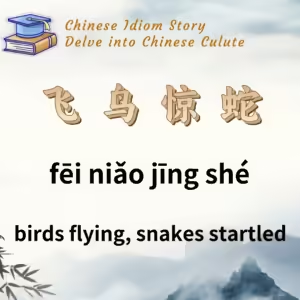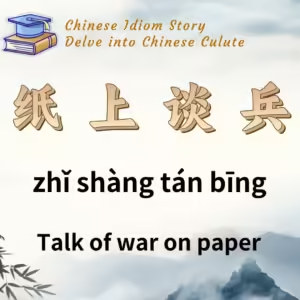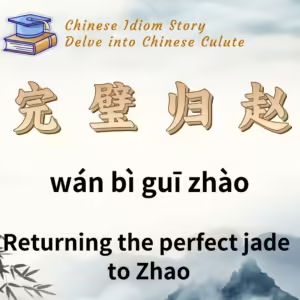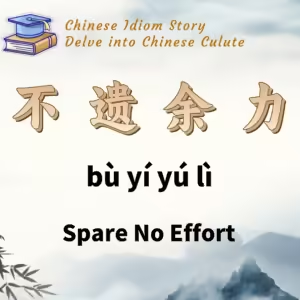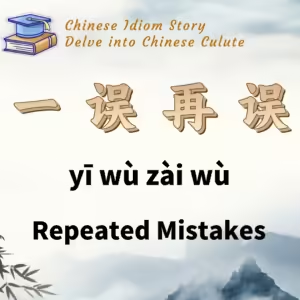
Chinese Idiom: 惊弓之鸟 (Jing Gong Zhi Niao)
English Translation: A bird startled by the sound of a bowstring
pīn yīn: jīng gōng zhī niǎo
Idiom Meaning: This idiom refers to someone who becomes frightened or panicked after having been scared or harmed in the past, especially when encountering a similar situation again.
Historical Source: Strategies of the Warring States (战国策) – “The Strategies of Chu.”
Idiom Story:
During the late Warring States period, the powerful state of Qin continually attacked the other states. At one point, the states of Chu and Zhao formed an alliance to confront Qin. When discussing who would lead their army, Lord Chunshen of Chu suggested appointing the skilled warrior Lin Wujun as commander, seeking the opinion of Zhao’s envoy, Wei Jia.
Upon hearing Lin Wujun’s name, Wei Jia frowned deeply and sighed but remained silent. Observing this, Lord Chunshen politely inquired about Wei Jia’s reservations regarding Lin Wujun’s suitability.
Wei Jia then shared a story from his youth about a famous archer named Geng Ling from Wei. One day, while hunting with the king of Wei, Geng Ling claimed he could shoot down a bird just by drawing his bowstring without an arrow. Skeptical, the king watched as Geng Ling proved his skill by making a noise with the bow, causing an injured goose, which had been flying slowly and crying sorrowfully, to drop from the sky.
After the king expressed astonishment at Geng Ling’s talent, Geng Ling explained that the goose was not just any bird; it had previously been wounded and was now fearful. The sound of the bowstring frightened it further, reopening its old wounds, causing it to fall.
Wei Jia then turned to Lord Chunshen and earnestly stated that Lin Wujun, having just suffered a significant defeat against the Qin army, was still mentally and emotionally wounded. Like the startled goose, he could not be expected to lead an army in battle so soon after such trauma.
Lord Chunshen, reflecting on this analysis, acknowledged the wisdom of Wei Jia’s words, realizing the importance of mental readiness in leadership. Thus, the idiom “惊弓之鸟” came to symbolize how past experiences of fear and trauma can affect one’s reactions to similar situations in the future.

